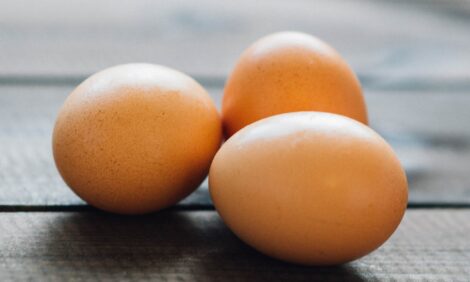



Poultry Company Under Pressure
BAHAMAS - As a result of rising feed prices and chicken imports, Abaco Big Bird is fighting to stay in business, says the poultry company's owner.An Abaco poultry producer has warned that it may not be in business much longer if current market conditions prevail, and has called on the Government to take steps to protect the domestic poultry industry. reports The Tribune.
Caroljean Lowe said production at Abaco Big Bird has dropped by 40 per cent in the last year, a reduction in demand that the farm attributes to the Government removing the requirement for chicken importers to be licensed, spurring a surge in the importation of cheap Brazilian chicken imports into the Bahamian market. The farm has reduced its 20-plus staffs' work hours and is "fighting to stay in business", said Mrs Lowe.
"I don't see us being here much longer if the Government doesn't step in and put a higher duty rate on this stuff which is coming in, or put some restrictions on where it's coming from," added the Abaco Big Bird proprietor.
Where the farm had been importing 17,000 day-old chicks a week to rear to maturity and slaughter, it has now reduced that to 10,000.
The farmers say they have also been hit by a rise in the cost of chicken feed. Grain prices have been rising throughout 2010, partly driven by demand for corn in ethanol production.
"It's definitely affecting us. Corn prices are up significantly compared to three or four years ago. They've been steadily high, but at the end of November/early December there was another big increase in the cost," Lance Pinder, Mrs Lowe's nephew and colleague at the farm, told Tribune Business.
Abaco Big Bird is hoping that in addition to trying to market its Bahamian-produced chicken more effectively, more creative and "convenient" packaging of its chicken for sale, as well as a reduction in price, can help to offset some of its losses.
New packages will see the chicken sold with pieces individually shrink-wrapped in five pound bags, rather than the 10-pound bags which were previously the company's mainstay. Cases of chicken will be sold for the equivalent of $0.83 cents a pound rather than the previous $1.60 per pound.
And a leaflet which the company plans to circulate asks customers: 'Do you know who's growing your chicken? Support your home team'.
The Government lifted the chicken importation permitting regime last year, according to The Tribune. Prime Minister Hubert Ingraham said the permitting regime was being brought to an end because it no longer served a purpose, and was acting as a protectionist measure that worked against Bahamian consumers, benefiting just a small number of local producers. He also argued that "corruption" had infested the process.
Mrs Lowe said that since that time – June 2010 – there has been a surge of imports from Brazil into the Bahamian market.
The poultry farmers say they "cannot believe" how cheaply the Brazilian chicken is being sold in the Bahamas, given the cost not only of producing the chicken, getting it from South America to the Bahamas, paying 43 per cent duty and then adding a profit on top for the seller. "It's flooding the market," said Mr Pinder.
Since the lifting of the import restrictions, demand from both Abaco, where it has traditionally sold 60 per cent of its produce, and the Nassau market, have dropped, said Mrs Lowe.
"Nassau used to order from us a lot, every two or three weeks, now it's every two or three months, but we still have people calling us asking where can they find our product," she said.
The farm's outlook differs from that of Bahamas Poultry, part of Sunshine Farms in Grand Bahama. The chicken meat and egg production facility was closed for much of last year, but is set to relaunch its meat production shortly, and has recently invested $1 million in upgrading its chicken houses and egg sorting equipment.
George Mills, assistant general manager at the Grand Bahama farm, said he believes the end of the permitting regime has not affected the domestic industry very much because it was so commonly circumvented prior to being eliminated.











